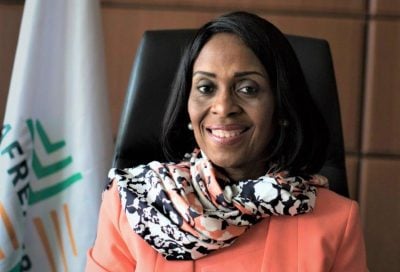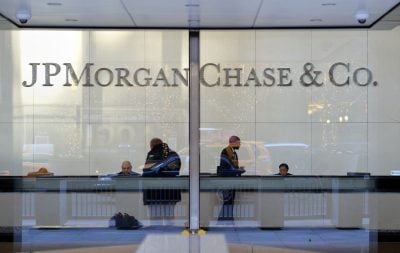The Spring Meetings of the World Bank and International Monetary Fund (IMF) wrapped up on 16 April, but by their close, the mild, sunny skies that had greeted delegates to the US capital earlier in the week had turned leaden and stormy, much like the mood of the African delegates.
Fears of global recession hung over the meetings due to widespread monetary policy tightening, deteriorating financial conditions and declining confidence. Issues such as runaway inflation, instability in the banking sector and the threat of a breakdown in trade due to the growing tensions between the US and China dominated many of the discussions.
The need for new funding mechanisms to help developing countries adapt to the green transition, the fallout from Covid and the risk of a serious debt crisis was a recurrent theme of the meetings.
Developing countries are calling for radical changes in how the multilateral development banks (MDBs), which include the World Bank, provide development funding.
Last July, the G20 published an independent report which found MDBs, including the World Bank, were overly cautious in their approach to lending and could unlock hundreds of billions of dollars in new loans for lower-income nations without endangering their stability or their credit ratings. However, efforts to raise new funding have been slow and few substantive commitments were made at the meetings.
It was agreed that the World Bank’s International Bank for Reconstruction and Development (IBRD) will lower its equity-to-loan ratio from 20% to 19% in a relaxation of lending restrictions that will unlock an additional $4bn in loans to middle-income countries that are not eligible for concessional finance. But while the IBRD lends to governments of middle-income and creditworthy low-income countries (including Angola, Botswana, and some other African countries), much of Africa remains reliant on the Bank’s other lending arm, the International Development Association (IDA).
The IDA lends to the poorest countries on more favourable terms than the borrower could obtain in the marketplace, and has been issuing loans to African governments at faster rates in recent years to deal with debt, food security and Covid-19. However, shareholders have not yet agreed to replenish it and massive demand looms for bank loan refinancings by borrowers in 2024.
“There’s a realisation that there will be a drop in IDA financing next year and we need to do something about it,” says Martin Kessler, the executive director of Paris-based think-tank Finance for Development Lab, adding that such a decision might be taken at the Summit for a New Global Financial Pact in Paris in June or the World Bank/IMF Annual Meetings in October.
African ministers express concerns
The IDA is not the only multilateral funding instrument that many have deemed insufficient for the continent’s needs.
At its meeting, the Africa High-level Working Group on the Global Financial Architecture expressed “deep concern” over what they said was the shortfall in resources for the IMF’s Poverty Reduction and Growth Trust (PRGT), which provides concessional lending to low-income countries. The Group, which comprises African ministers of finance, planning and economic development, as well as African and global multilateral institutions including the World Bank and the participation of IMF staff and executive directors, called on the Fund to sell part of its gold reserves in the medium term to increase the availability of funding.
The Group also urged the IMF to raise the annual access limits of the Rapid Credit Facility and Rapid Financing Instrument – emergency lending facilities that have been crucial in the response to Covid-19. They argued that global interest rate hikes have made longer-term financing under the IMF’s Resilience and Sustainability Trust expensive, necessitating a freezing of interest rates at the Trust and a boost in its resources.
The ministers stressed the need for loans at low interest rates with long maturities in the face of countries’ long-term investment needs for achieving the UN’s Sustainable Development Goals and combating climate change. They also reiterated long-standing demands to scrap IMF surcharges – additional interest payments due on loans – and to allow Africa a greater allocation of IMF Special Drawing Rights.
While IMF funding reform may be some way off,US President Joe Biden’s nomination of Ajay Banga to replace David Malpass, who will step down as president of the World Bank at the end of June, has raised hopes that the Indian-born business executive will champion reforms to rejig its lending model.
However, experts advise caution on this front. “I think it still remains to be seen whether Banga will want to make a big shift in the Bank. Right now, I think people are not necessarily preparing for that. I did not hear any noises that he will be different,” Hannah Ryder, CEO of international development consultancy Development Reimagined, tells African Business.
Progress on debt
The meetings also shone a spotlight on the IMF’s response to the global debt crisis. With 25% of emerging markets and 60% of low-income countries, including many in Africa, in or near debt distress, up to $520bn needs to be written off by richer countries, according to a recent report by Boston University.
Many African countries arrived in Washington harbouring high hopes for a breakthrough in talks between China, the world’s largest bilateral creditor, and the IMF over how to restructure billions of dollars in debt to unlock desperately needed aid. Among their number were Zambia, Ghana and Ethiopia, who face agonising delays in finalising debt treatment agreements with China, the Paris Club and other creditors.
To this end, a meeting of the Global Sovereign Debt Roundtable (GSDR) was convened on the sidelines of the event to discuss how to accelerate debt restructuring processes and make them more efficient. Unlike other multilateral settings, such as the G20’s Common Framework and the Paris Club, which allow borrowers to present their case but then exclude them from discussions, the GSDR includes six debtor countries as well as lenders.
During the meeting the governor of China’s People’s Bank, Yi Gang, indicated that his country would be more flexible about how to restructure billions of dollars of debt held by poorer nations, but made no concrete commitments on speeding up the restructuring process. This eased the deadlock between creditor nations on how to renegotiate poorer nations’ debt, but the language emerging from the agreement was loose enough to allow China to wriggle out of the deal, says Ryder.
An important outcome of the talks was that an official creditor meeting was scheduled for Lusaka in May, where Zambia is expected to sign a deal with China and its other private creditors on debt relief, a key step needed to pave the way for more IMF funding.
Ghana, which has also requested to rework its bilateral debt under the Common Framework platform, also expects IMF loan approval in May.
Is reform possible?
At its meeting the High-level Working Group on the Global Financial Architecture called for fundamental reforms that would be capable of strengthening the IMF’s operating model to deal more effectively with global shocks and create “an IMF that is fit for the 21st Century”.
Hanan Morsy, deputy executive secretary and chief economist at the UN’s Economic Commission for Africa, which coordinates the group, emphasised the need to champion “concrete, actionable asks that can be swiftly implemented while also calling out structural imbalances that require a longer-term reform approach”.
Despite the progress on debt, as African ministers left Washington, the abiding feeling was one of disappointment. Morsy’s remarks raise a crucial question – are the IMF and World Bank, which were founded nearly 80 years ago, ready to evolve in order to ensure the global macroeconomic stability they were set up to create?
Want to continue reading? Subscribe today.
You've read all your free articles for this month! Subscribe now to enjoy full access to our content.
Digital Monthly
£8.00 / month
Receive full unlimited access to our articles, opinions, podcasts and more.
Digital Yearly
£70.00 / year
Our best value offer - save £26 and gain access to all of our digital content for an entire year!

 Sign in with Google
Sign in with Google 



